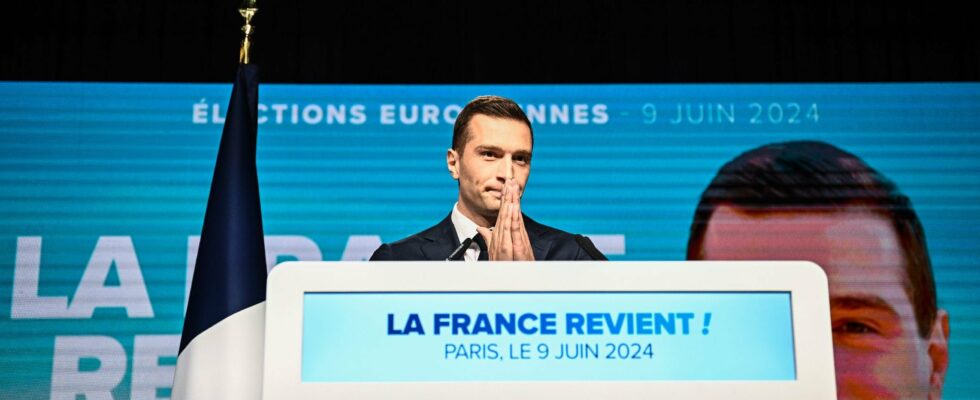No matter the promises, reality always ends up imposing itself. In the event of a victory for the National Rally in the next legislative elections, the question of public finances risks very quickly haunting the nights of Jordan Bardella, potential Prime Minister. While the S&P agency recently downgraded the French public debt rating, the European Commission could place France in the “excessive deficit procedure” in the coming days. A call to order which can be explained by the drift in the accounts in recent years: public debt rose from 98.2% of GDP in 2018 to 110.6% at the end of 2023. Or 1,000 billion d ‘more euros of debt.
As for the deficit in public accounts – State, public authorities and social security organizations – it reached 5.5% of GDP at the end of last year, compared to 2.3% in 2018, one of the worst performance in the euro zone. Worse, the budgetary roadmap between now and 2027 sent recently by the Attal government to Brussels was crushed here, in France, by the High Council of Public Finances – an independent body -, deeming it not very credible.
Certainly, the EU adopted new, slightly more flexible budgetary rules in the spring. Except that this framework does not apply when a country is placed in excessive deficit procedure. In theory therefore, France will have to commit to reducing its deficits by 0.5 points of GDP each year until the country returns to European standards. That’s around twenty billion in lasting savings per year. Failure to respect this new budgetary framework, and a first crisis with Europe is emerging.
The optimists or the cynics, it depends, will always be able to say that this is not the first time that France has fallen under this procedure and that the Earth has continued to turn… and France to fall into debt. Yes, but this time the matter could be different. Because the financial markets are in ambush. Already this Monday morning, the CAC 40 index of the Paris Stock Exchange has fallen and the gap between French and German long-term interest rates has widened. Until now, the markets have shown great leniency towards France and its budgetary gaps. An indulgence which might not last if the RN puts into practice its expensive electoral promises. Some examples ? The reduction from 20% to 5.5% in taxation on fuels: a measure whose cost has been estimated at 10 billion euros per year by the Montaigne Institute. Likewise, the complete abolition of the corporate property tax (CFE) and the corporate social solidarity contribution (C3S) could reduce tax revenue by 10.6 billion euros. And what about the return of the retirement age to 60, the details of which are currently very vague?
In view of the construction of the Budget for 2025, the pressure could therefore increase. In the fall of 2022, British Prime Minister Liz Truss was pushed to resign by the financial markets after the presentation of a fanciful budget which triggered a real crisis on interest rates. Jordan Bardella and the RN should remember this: those who lend us money are always right in the end.
